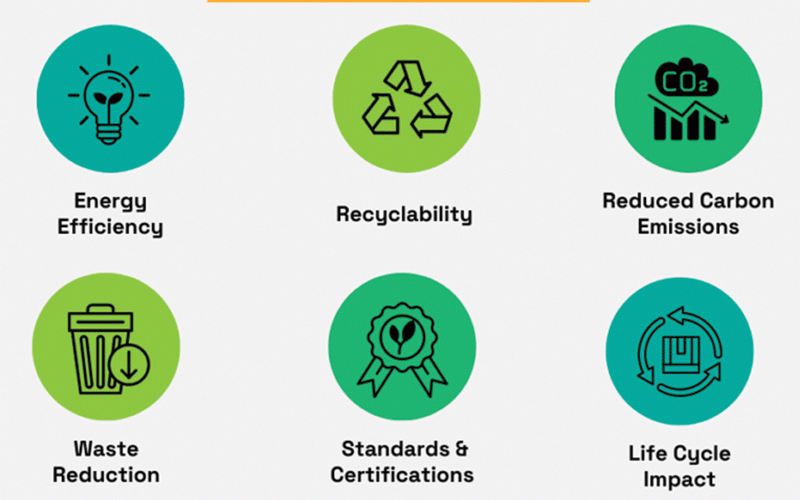
THE manual and analogue processes of yesteryear are no longer relevant in today’s highly volatile business environment.
To achieve procurement transformation, a complete overhaul of legacy processes is required. The current business environment requires procurement professionals to make decisions on the fly.
Companies are organisations in constant motion. The new global trade realities confront procurement leaders with a crucial choice, either to sustain their traditional focus on cost reduction or embrace a more strategic mindset centred on agility and flexibility.
It requires turning procurement from a back-office administrative annoyance into a real force for transformational change.
In a rapidly evolving business landscape where market dynamics, technological advancements and competitive pressures continuously shape the playing field, procurement transformation has become table stakes.
The wave of procurement transformation continues to bring a welcome transition towards a well-connected world. It would appear it has been acknowledged throughout the world that procurement transformation holds the ultimate key to organisational recalibration.
Procurement transformation seeks to shake things up and change the corporate conversations on how organisations can survive the frequent supply chain challenges.
The current economic dynamics demand that organisational re-engineering and cultural renewal should coalesce to change the way supply chains operate. For a procurement transformational movement to be successful, everyone involved must be on the bus as the corporate world is witnessing a seismic shift in the way procurement is run.
- A dispassionate look into StanChart’s Zimbabwe exit
- Govt committed to support local manufacturing industry
- Govt committed to support local manufacturing industry
- 'Women must be accountable in business'
Keep Reading
Following a myriad of transformative trends will assist in reshaping how supply chains are reconfigured to cope with the headwinds of change.
Many organisations have witnessed first-hand how the volatile business environment can expose the vulnerabilities of outdated supply chain systems. It is glaringly clear that the traditional supply chain models are no longer cut out for the demands and complexities of the modern world.
Supply chain organisations are paying the price for not keeping abreast with evolving business changes.
In today’s volatile business environment, organisations are confronted by evolving market dynamics coupled with supply chain disruptions, frequent technological changes and shifting consumer expectations.
Procurement transformational initiatives will assist business organisations to adapt to these frequent changes, walking in step with customer requirements. Supply chain reconfiguration is, therefore, slowly being recognised as the new currency of competitive advantage for high-performing organisations.
Supply chains are no longer looked down upon as a burden of responsibility to be managed but as enablers of organisational transformation.
The procurement transformation process must involve rethinking and redesigning of procurement methods, structures and strategies to increase performance, realise financial savings and create value for all stakeholders.
This transformation journey will involve a critical analysis of each step of the procurement cycle and identifying potential bottlenecks, redundancies, supply chain inefficiencies and potential open spaces for improvement.
The transformation will, therefore, involve the planned overhaul of procurement process flows and organisational structures with a singular focus to attain significant improvements in efficiencies and effectiveness.
In order to formulate an effective transformation roadmap, procurement leaders are required to identify current pain points in the chain.
Ideally, it must begin by asking the right questions. What technologies can we adopt to improve the current systems in place or how can we make supply chain process flows user friendly or more cost efficient?
Overcoming the frequent supply chain challenges will require doing away with the current rigid structures in organisations with a view to streamline, simplify and optimise supply chain operations.
Organisations are, therefore, being challenged to develop new operating blueprints for their supply chains. Procurement transformation was long identified as having the capacity to drive operational efficiencies, which can transform supply chains into profitability engines.
In today’s rapidly evolving business landscape, procurement transformation is no longer a matter of choice but a necessity.
The intellectual pillars of this transformational spirit are a recognition that everything begins with the customer. Transformational procurement initiatives must be focused on concentrating on those activities that are closely aligned with the overall business strategy and objectives to cater for customer needs.
The processes will entail the intimate understanding of user needs and designing a procurement platform more responsive to the needs of our time.
At its core, this process will involve reimagining and optimising procurement processes to drive greater procurement efficiency and the cost savings mindset across the procurement value chain.
Procurement transformation will, therefore, involve the comprehensive overhaul of the corporate supply chain strategies, procurement process flows, technology adoption and organisational restructuring to drive significant improvements in process efficiency, organisational effectiveness and value creation within the procurement value chain.
It requires reimagining of modern procurement practices and the implementation of innovative approaches to optimise sourcing processes, supplier relationship management and contract management processes negotiation.
Transformation processes will provide a reliable procurement framework that focuses on shifting your procurement department from a tactical cost centre to a strategic value-adding function.
The benefits of procurement transformation are plenty.
Procurement transformation will enhance the identification of risk management capabilities to include supplier risk assessment and regulatory compliance monitoring with a view to mitigate potential supply chain risks.
Procurement transformation will seek to leverage data analytic tools to mitigate risks, enhance visibility, collaboration and decision-making across the procurement lifecycle.
This will assist organisations in ensuring that regulatory compliance will significantly reduce the risk of fraud and corruption. Transparent procurement processes will serve as building blocks for trust and confidence building among clients, investing members of the community and regulatory statutory bodies. This will serve to strengthen the organisation’s reputation and brand equity in the community.
Organisations are poised to uncover a treasure trove of innovation, heightened efficiency and unparalleled strategic value through quality assurance. Procurement transformation will emphasise on the need to ensure that the product and service quality standards are maintained throughout the supply chain ecosystem.
The application of a robust quality assurance management system will facilitate the identification of quality-related challenges early on with a view to proactively reduce the immediate risk of defects and recalls, ultimately improving customer satisfaction.
The transformation process improvement initiatives will strongly enhance quality standards in the profession and lower operational costs which will significantly improve productivity and performance levels throughout the organisation.
It is about optimising total quality management principles to create strategic value for your organisation.
For many years, procurement professionals had their eyeballs buried in manual paperwork. Outdated procurement practices have always acted as a hindrance to procurement’s capability to stay aligned with broader organisational value proposition.
Automation of the procurement process flow serves as another significant benefit of procurement transformation.
The automation of repetitive or manual tasks such as purchase order processing and reconciliation of supplier invoices can assist by significantly reducing manual errors, saving countless manhours of wasted productivity time.
Digital procurement transformation will be laser-focused on dealing with the automation of the more laborious and repetitive tasks. Automation of traditional processes reduces manual interventions, expedites workflows and cuts down operational costs.
Automating repetitive and low-value procurement tasks that do not involve intuitive decision making can reduce the time and effort invested in the procurement process.
Process automation is a fool-proof way of transforming procurement processes for better efficiency and productivity.
Digital tools are not just tools. They are the future of procurement.
There is a significant shift towards sustainability in world economies. This shift requires supply chains to be more flexible and scalable to adjust to variable market conditions and integrate sustainable practices without compromising efficiency.
Sustainability is now a major thing to consider when futureproofing supply chains. Transformation initiatives that are designed to promote sustainability practices will guarantee regulatory compliance with relevant rules, regulations and statutory requirements, mitigating the reputational risks associated with non-compliance.
It is, therefore, imperative for organisations to develop resilient and sustainable procurement structures and systems to move in step with the eco-friendly mantra.
Procurement transformation will therefore enable organisations to align their procurement activities with their environmental, social and governance objectives. Organisations will be in a position to reduce their carbon footprint, support social enterprises and improve supplier relationships.
In conclusion, supply chain professionals will continue to face unprecedented challenges in navigating a landscape shaped by frequent supply chain disruptions.
Just as the business world is undergoing a process of significant transformation, so must organisations. Procurement transformation must be targeted at revolutionising decision making processes.
It is common knowledge that the muscle behind change is not periodic, it is continuous. This might sound convoluted but there is sound logic here. Procurement transformation will seek to develop the foundational supply chain capabilities required to compete in today’s competitive market.
It will prepare organisations to emerge stronger and more prepared for future economic uncertainties.
Procurement transformation platforms should always be designed to last, providing future-proof value to the business community.
Venturing into the realm of procurement transformation is not just an ordinary sojourn.
It must be considered as a strategic quantum leap towards securing a flourishing supply chain future in a rapidly changing business landscape.
As organisations recalibrate and forge ahead, procurement transformation should be regarded as an indispensable catalyst in curving a critical path to triumph. It is a business imperative that promises to redefine the essence of operational success.
- Nyika is a supply chain practitioner based in Harare. — [email protected]











